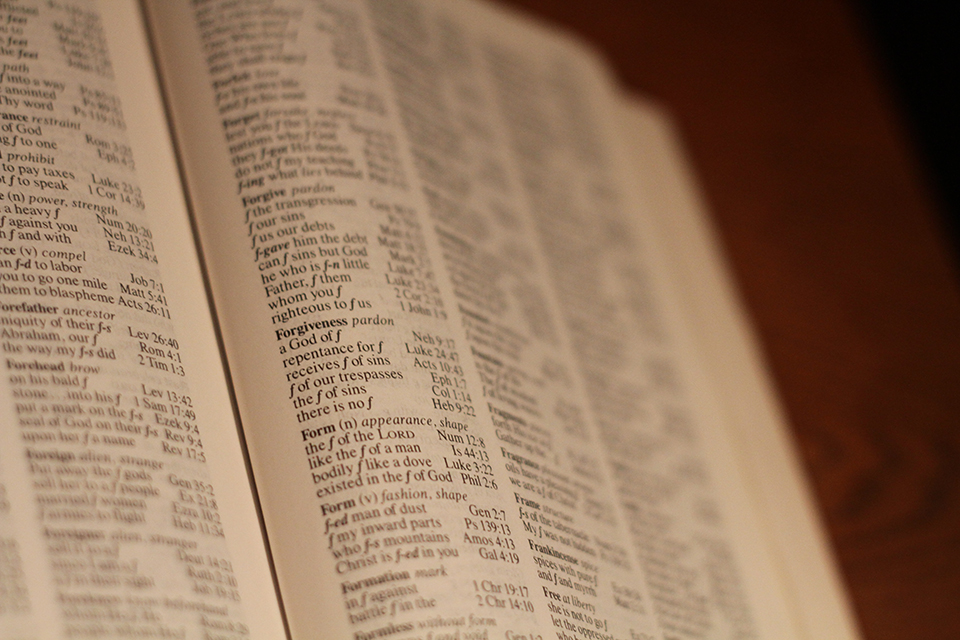Disclaimer: The names of Hakan, Nur and Ahmet are pseudonyms. The guest’s and panelists’ real names cannot be disclosed for their own safety.
“We truly apologize for what our ancestors did to your ancestors. We are truly sorry,” said Hakan, one of the Turkish panelists, between tears. “Evil is never justified.” His voice rang throughout the small chapel as Armenians surrounded the mostly Turkish panelists for prayer.
100 years of mourning
Then the moderator prayed, and one line struck louder than the rest: “That the blood of 1.5 million Armenians would be covered by the blood of one man Jesus Christ.” Amen.
Turkish and Armenian Christians gathered together in Calvary Chapel for a reconciliation chapel service hosted by the department of history and the department of biblical and theological studies on Friday morning. The moderator, a youth pastor of Armenian descent, led three Turkish and one Armenian panelists in discussions about Turkish and Armenian peace.
Over a hundred years have passed since the Armenian Genocide when the Ottoman Empire murdered and drove out over 1.5 million Armenians. The genocide began in 1915 near the start of the first World War. Nearly two million Armenians lived in the Ottoman Empire in 1915, but after the war, less than 400,000 remained. Despite these numbers and historians’ claims, the Turkish government denies the existence of the genocide to this day.
Because of the pain their ancestors endured, many Armenians have never forgiven the Turks, and for Turks, to admit the genocide is to deny your country. The division among the two people groups has spread even into the church. Consequently, a chapel such as this one proved monumental, and even dangerous, for the Turks and Armenians and displayed the power of forgiveness in God.
“We are the sons and daughters of one Father, so it becomes a big family. I mean, you should see us when we are sitting together. We’ve been having tea and eating, and both sides love eating and sitting and chatting and having tea, chai as we all call it,” Hakan said. “It’s heavenly and there’s no barriers. And I think that is what, I would say, the hope of this chapel atmosphere gives.”
The chapel filled with students, a large number of which came from Armenian descent, Turkish and Armenian guests, and leaders of the Armenian-Turkish Peace Initiative, a group of Turkish and Armenian Christian leaders seeking reconciliation and friendship. The chapel speakers shared their stories and their passion for harmony between the two groups.
“I would have never seen myself there just because it’s hard to believe that there are Turkish people who are willing to seek forgiveness for the genocide,” said Isso Avetisyan, sophomore sociology major whose parents emigrated from Armenia. “Just to be able to forgive them and have forgiveness in return. It was just very special.”
Feza Ertek, a Turkish attendee who currently lives in Canada, expressed her reasons for attending stemmed from the earliest moments of her life. She was born into a Muslim family, and upon her birth, a young Armenian girl gave her water before the special dedication Muslim babies receive. When Ertek grew up, God reminded her of the living water she had received and challenged her to also give living water to others.
responsibility as peacemakers.
One of the Turkish panelists, Nur, narrated her conversion to faith through an Armenian. When she was 17, she passed by an Armenian Christian church. Plagued with questions, she attempted to enter the church, but the man at the door would not let her in. When she turned away, another Armenian pastor followed her and gave her the name of his friend who eventually led her to Christ.
“Because of… that Armenian pastor who helped me… now I’m here to talk to you about Jesus, and it truly humbles me especially to do this in front of Armenian people,” Nur said to the audience.
Ahmet, a Turkish guest at the chapel, explained he came because he felt Jesus wanted him to participate in the relationship of the two people groups. After reading 2 Corinthians, he believed Jesus had given Christians the responsibility of the peacemakers.
“If also we obey the Word of God through Jesus, then the church and chapels can take the kingdom of God [to] the earth because God want[s] it,” Ahmet said. “If we do this, the Holy Spirit is going to arrange Armenians and Turks together.”
At the end of the chapel, the leader asked all the Armenians in the crowd to surround the Turkish and Armenian speakers to bless them in their mission of peace. The people hugged and greeted each other, and the feeling of forgiveness and amicability spread throughout the building. In prayer, the two opposing groups united and for a moment heaven breathed down onto earth.
“The politics and governments, they couldn’t do that. They couldn’t fix this problem. But there’s a new time, and it’s beginning. And then the children of God are making it now,” Ahmet said. “Armenians and Turks are together, and they pray [with] each other now. And we hug each other. This is the kingdom of God, actually. This is the kingdom of God.”







